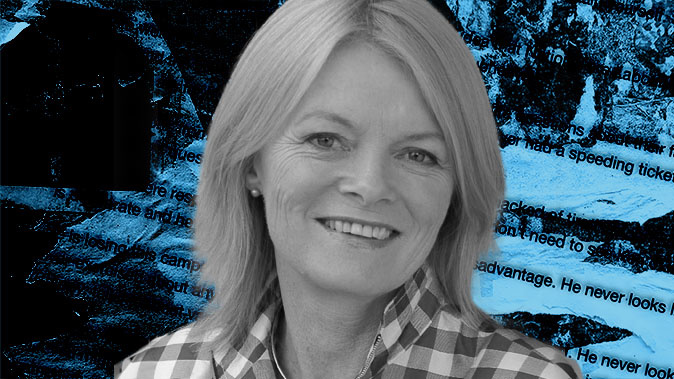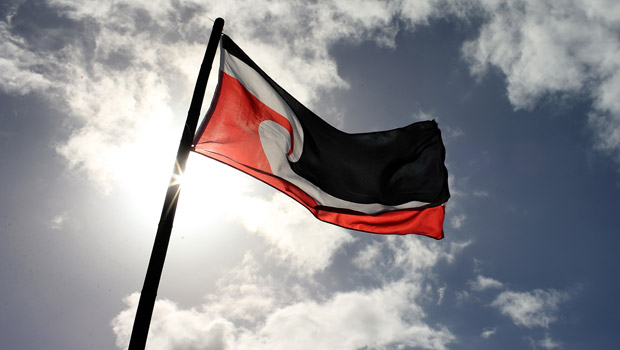
As we reflect on last year’s change in government, what the past six years have taught us is just how fragile democracy really is and how easily it is undermined. So, let’s examine its status as we begin 2024.
It’s the four pillars of a representative democracy - the legislature, the executive, the judiciary and the media – that preserve our freedoms and democratic rights.
The "legislature" is our House of Representatives, and it is primarily responsible for law-making. Members of Parliament are elected under the Mixed Member Proportional voting system. MMP was, of course, recommended by the 1986 Royal Commission into the Electoral System – which also advised abolishing the Māori seats to avoid an over-representation of Māori in Parliament. Accordingly, when the MMP legislation was first tabled in Parliament in the early nineties, there was no provision for Māori seats.
But as a result of pressure from Māori leaders, weak politicians caved in and the Māori seats were retained. Now, as predicted by the Royal Commission, while Māori make up only 13.7 per cent of the voting-age population, they presently hold a disproportionate 27 per cent of the seats in Parliament. This massive over-representation of Māori in Parliament not only undermines proportionality, but it discriminates against non-Māori and is in breach of the guarantee of freedom from discrimination in our Bill of Rights and the Human Rights Act.
The Māori seats are no longer required: They should be abolished.
The second pillar of democracy, the "executive", consists of the Prime Minister’s Cabinet and the departments and ministries which run the country. The government’s policy agenda is presented to voters in the lead-up to an election, and the public mandate they receive gives them the constitutional legitimacy to govern. During the 2020 election, however, Labour kept its key He Puapua policy secret from voters. As a result, it had no mandate whatsoever to transfer power to iwi leaders.
The 50:50 "co-governance" mechanism it used, which gives representatives of the 17 per cent minority of the population who identify as Māori the same voting power as representatives of the 83 per cent majority, undermines democracy as we know it. By giving representatives of the tribal elite almost five times the voting power in democratic decision-making as the representatives of the general public, co-governance is not only grossly discriminatory but it erodes the one-person, one-vote foundation stone of our Westminster democratic system.

Furthermore, by giving Māori activists 50 per cent of voting rights on decision-making boards, they gain the power of veto – effectively replacing democracy with tribal totalitarianism. Co-governance is based on a fabricated reinterpretation of the Treaty of Waitangi as a "partnership", in spite of the fact that it is constitutionally impossible for the Crown to enter into a partnership with subjects.
Not only were co-governance arrangements forced onto public sector organisations as part of the He Puapua rollout, but private sector groups that engage with the government through registration or funding - including charities, real estate firms, architects, engineers and lawyers – were also targeted and required to promote co-governance and the fictional Treaty partnership. These racist and discriminatory arrangements should be removed.
The third pillar of a democratic government, the "judiciary", is not only responsible for the interpretation and application of the laws passed by Parliament, but they are also the gatekeepers of the Rule of Law – ensuring the law is certain, foreseeable, easy to understand, and applies equally to everyone. Recent moves to include "tikanga", or Māori custom, in the law, is, however, undermining the Rule of Law and democracy itself.
The NZCPR’s long-running campaign to prevent a tribal takeover of New Zealand’s coastline clearly shows the danger. When National repealed Crown ownership of the foreshore and seabed and opened the coast up for tribal claims in 2011, they promised no more than 10 per cent would end up controlled by Māori. But they included tikanga in their new law: The Marine and Coastal Area Act (MACA) not only required claimants seeking a Customary Marine Title to have held their claimed area exclusively and continuously since 1840, but they also had to have held it according to tikanga. When the first of almost 600 claims for the coast was heard in the High Court, the judge focused on tikanga instead of the property rights test, finding in favour of claimants and signalling that most claims were likely to succeed.
We appealed the case to the Court of Appeal in the hope that the judges would reinforce Parliament’s intention. Instead, they expressly ignored it and also focused on tikanga, giving it status the legislation never intended, and further lowering the bar to ensure that virtually the entire coast will end up in tribal hands. The only positive from the decision is that it is now clear to the Coalition Government that MACA needs to be urgently fixed.
If it isn’t almost 100 per cent of the coastline and Territorial Sea will end up controlled by competing tribal groups, instead of the promised 10 per cent - and hundreds of millions of taxpayer dollars will be paid to the army of lawyers now feasting at this trough. In a broader sense, what the case has also revealed is how tikanga fatally undermines the Rule of Law - which is a crucial component of a properly functioning democracy - by transforming the outcome from what Parliament intended to what iwi want.
The fourth democratic pillar is the "media", or fourth estate, which is meant to act as a watchdog for society, informing the public and holding the government to account.
Sadly, Labour damaged the reputation of the media by establishing a $55 million Public Interest Journalism Fund that required recipients to not only promote their fabricated Treaty partnership agenda, but to embed a commitment to the Treaty and a Māori worldview in their business operations. Unless such mandated politicised requirements are reversed, the media risks being seen as having been captured and transformed into a propaganda arm for Labour and iwi leaders.
With democracy in such a vulnerable state it is long past time for work to begin on initiatives that will repair and strengthen the democratic system that underpins our Nation State: Abolishing the Māori seats to restore proportionality to Parliament, and removing all references to tikanga from legislation to restore the Rule of Law, would be a good place to start.
Take your Radio, Podcasts and Music with you









